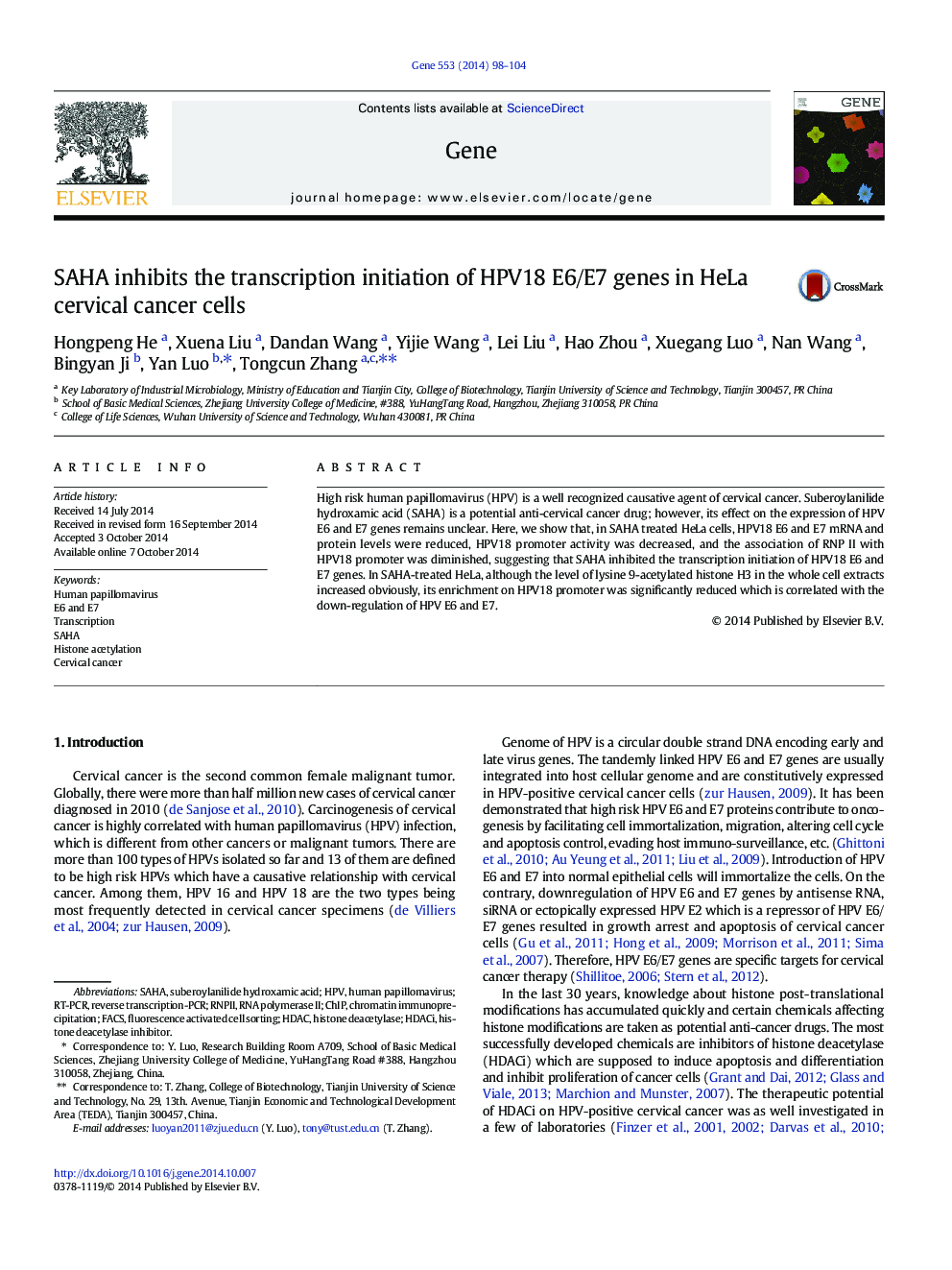| Article ID | Journal | Published Year | Pages | File Type |
|---|---|---|---|---|
| 2816067 | Gene | 2014 | 7 Pages |
•The expression of HPV18 E6 and E7 genes were inhibited by SAHA treatment.•The recruitment of RNP II to HPV18 promoter was reduced in SAHA treated cells.•Histone modifications altered on HPV promoter following SAHA treatment.•SAHA blocked the cell division cycle but had little effect on apoptosis.
High risk human papillomavirus (HPV) is a well recognized causative agent of cervical cancer. Suberoylanilide hydroxamic acid (SAHA) is a potential anti-cervical cancer drug; however, its effect on the expression of HPV E6 and E7 genes remains unclear. Here, we show that, in SAHA treated HeLa cells, HPV18 E6 and E7 mRNA and protein levels were reduced, HPV18 promoter activity was decreased, and the association of RNP II with HPV18 promoter was diminished, suggesting that SAHA inhibited the transcription initiation of HPV18 E6 and E7 genes. In SAHA-treated HeLa, although the level of lysine 9-acetylated histone H3 in the whole cell extracts increased obviously, its enrichment on HPV18 promoter was significantly reduced which is correlated with the down-regulation of HPV E6 and E7.
